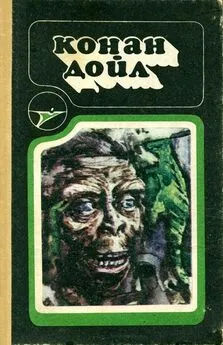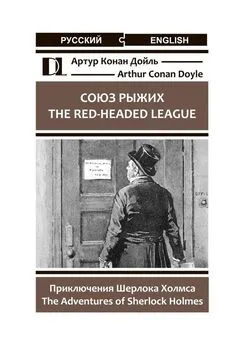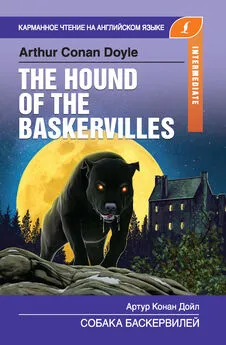Артур Конан Дойл - The Great Boer War
- Название:The Great Boer War
- Автор:
- Жанр:
- Издательство:неизвестно
- Год:неизвестен
- ISBN:нет данных
- Рейтинг:
- Избранное:Добавить в избранное
-
Отзывы:
-
Ваша оценка:
Артур Конан Дойл - The Great Boer War краткое содержание
The Great Boer War - читать онлайн бесплатно ознакомительный отрывок
Интервал:
Закладка:
The British Government in South Africa has always played the unpopular part of the friend and protector of the native servants. It was upon this very point that the first friction appeared between the old settlers and the new administration. A rising with bloodshed followed the arrest of a Dutch farmer who had maltreated his slave. It was suppressed, and five of the participants were hanged. This punishment was unduly severe and exceedingly injudicious. A brave race can forget the victims of the field of battle, but never those of the scaffold. The making of political martyrs is the last insanity of statesmanship. It is true that both the man who arrested and the judge who condemned the prisoners were Dutch, and that the British Governor interfered on the side of mercy; but all this was forgotten afterwards in the desire to make racial capital out of the incident. It is typical of the enduring resentment which was left behind that when, after the Jameson raid, it seemed that the leaders of that ill-fated venture might be hanged, the beam was actually brought from a farmhouse at Cookhouse Drift to Pretoria, that the Englishmen might die as the Dutchmen had died in 1816. Slagter's Nek marked the dividing of the ways between the British Government and the Afrikaners.
And the separation soon became more marked. There were injudicious tamperings with the local government and the local ways, with a substitution of English for Dutch in the law courts. With vicarious generosity, the English Government gave very lenient terms to the Kaffir tribes who in 1834 had raided the border farmers. And then, finally, in this same year there came the emancipation of the slaves throughout the British Empire, which fanned all smouldering discontents into an active flame.
It must be confessed that on this occasion the British philanthropist was willing to pay for what he thought was right. It was a noble national action, and one the morality of which was in advance of its time, that the British Parliament should vote the enormous sum of twenty million pounds to pay compensation to the slaveholders, and so to remove an evil with which the mother country had no immediate connection. It was as well that the thing should have been done when it was, for had we waited till the colonies affected had governments of their own it could never have been done by constitutional methods. With many a grumble the good British householder drew his purse from his fob, and he paid for what he thought to be right. If any special grace attends the virtuous action which brings nothing but tribulation in this world, then we may hope for it over this emancipation. We spent our money, we ruined our West Indian colonies, and we started a disaffection in South Africa, the end of which we have not seen. Yet if it were to be done again we should doubtless do it. The highest morality may prove also to be the highest wisdom when the half-told story comes to be finished.
But the details of the measure were less honourable than the principle. It was carried out suddenly, so that the country had no time to adjust itself to the new conditions. Three million pounds were ear-marked for South Africa, which gives a price per slave of from sixty to seventy pounds, a sum considerably below the current local rates. Finally, the compensation was made payable in London, so that the farmers sold their claims at reduced prices to middlemen. Indignation meetings were held in every little townlet and cattle camp on the Karoo. The old Dutch spirit was up – the spirit of the men who cut the dykes. Rebellion was useless. But a vast untenanted land stretched to the north of them. The nomad life was congenial to them, and in their huge ox-drawn wagons – like those bullock-carts in which some of their old kinsmen came to Gaul – they had vehicles and homes and forts all in one. One by one they were loaded up, the huge teams were inspanned, the women were seated inside, the men, with their long-barrelled guns, walked alongside, and the great exodus was begun. Their herds and flocks accompanied the migration, and the children helped to round them in and drive them. One tattered little boy of ten cracked his sjambok whip behind the bullocks. He was a small item in that singular crowd, but he was of interest to us, for his name was Paul Stephanus Kruger.
It was a strange exodus, only comparable in modern times to the sallying forth of the Mormons from Nauvoo upon their search for the promised laud of Utah. The country was known and sparsely settled as far north as the Orange River, but beyond there was a great region which had never been penetrated save by some daring hunter or adventurous pioneer. It chanced – if there be indeed such an element as chance in the graver affairs of man – that a Zulu conqueror had swept over this land and left it untenanted, save by the dwarf bushmen, the hideous aborigines, lowest of the human race. There were fine grazing and good soil for the emigrants. They traveled in small detached parties, but their total numbers were considerable, from six to ten thousand according to their historian, or nearly a quarter of the whole population of the colony. Some of the early bands perished miserably. A large number made a trysting-place at a high peak to the east of Bloemfontein in what was lately the Orange Free State. One party of the emigrants was cut off by the formidable Matabeli, a branch of the great Zulu nation. The survivors declared war upon them, and showed in this, their first campaign, the extraordinary ingenuity in adapting their tactics to their adversary which has been their greatest military characteristic. The commando which rode out to do battle with the Matabeli numbered, it is said, a hundred and thirty-five farmers. Their adversaries were twelve thousand spearmen. They met at the Marico River, near Mafeking. The Boers combined the use of their horses and of their rifles so cleverly that they slaughtered a third of their antagonists without any loss to themselves. Their tactics were to gallop up within range of the enemy, to fire a volley, and then to ride away again before the spearmen could reach them. When the savages pursued the Boers fled. When the pursuit halted the Boers halted and the rifle fire began anew. The strategy was simple but most effective. When one remembers how often since then our own horsemen have been pitted against savages in all parts of the world, one deplores that ignorance of all military traditions save our own which is characteristic of our service.
This victory of the 'voortrekkers' cleared all the country between the Orange River and the Limpopo, the sites of what has been known as the Transvaal and the Orange Free State. In the meantime another body of the emigrants had descended into what is now known as Natal, and had defeated Dingaan, the great Chief of the Zulus. Being unable, owing to the presence of their families, to employ the cavalry tactics which had been so effective against the Matabeli, they again used their ingenuity to meet this new situation, and received the Zulu warriors in a square of laagered wagons, the men firing while the women loaded. Six burghers were killed and three thousand Zulus. Had such a formation been used forty years afterwards against these very Zulus, we should not have had to mourn the disaster of Isandhlwana.
And now at the end of their great journey, after overcoming the difficulties of distance, of nature, and of savage enemies, the Boers saw at the end of their travels the very thing which they desired least – that which they had come so far to avoid – the flag of Great Britain. The Boers had occupied Natal from within, but England had previously done the same by sea, and a small colony of Englishmen had settled at Port Natal, now known as Durban. The home Government, however, had acted in a vacillating way, and it was only the conquest of Natal by the Boers which caused them to claim it as a British colony. At the same time they asserted the unwelcome doctrine that a British subject could not at will throw off his allegiance, and that, go where they might, the wandering farmers were still only the pioneers of British colonies. To emphasise the fact three companies of soldiers were sent in 1842 to what is now Durban – the usual Corporal's guard with which Great Britain starts a new empire. This handful of men was waylaid by the Boers and cut up, as their successors have been so often since. The survivors, however, fortified themselves, and held a defensive position – as also their successors have done so many times since – until reinforcements arrived and the farmers dispersed. It is singular how in history the same factors will always give the same result. Here in this first skirmish is an epitome of all our military relations with these people. The blundering headstrong attack, the defeat, the powerlessness of the farmer against the weakest fortifications – it is the same tale over and over again in different scales of importance. Natal from this time onward became a British colony, and the majority of the Boers trekked north and east with bitter hearts to tell their wrongs to their brethren of the Orange Free State and of the Transvaal.
Had they any wrongs to tell? It is difficult to reach that height of philosophic detachment which enables the historian to deal absolutely impartially where his own country is a party to the quarrel. But at least we may allow that there is a case for our adversary. Our annexation of Natal had been by no means definite, and it was they and not we who first broke that bloodthirsty Zulu power which threw its shadow across the country. It was hard after such trials and such exploits to turn their back upon the fertile land which they had conquered, and to return to the bare pastures of the upland veld. They carried out of Natal a heavy sense of injury, which has helped to poison our relations with them ever since. It was, in a way, a momentous episode, this little skirmish of soldiers and emigrants, for it was the heading off of the Boer from the sea and the confinement of his ambition to the land. Had it gone the other way, a new and possibly formidable flag would have been added to the maritime nations.
The emigrants who had settled in the huge tract of country between the Orange River in the south and the Limpopo in the north had been recruited by newcomers from the Cape Colony until they numbered some fifteen thousand souls. This population was scattered over a space as large as Germany, and larger than Pennsylvania, New York, and New England. Their form of government was individualistic and democratic to the last degree compatible with any sort of cohesion. Their wars with the Kaffirs and their fear and dislike of the British Government appear to have been the only ties which held them together. They divided and subdivided within their own borders, like a germinating egg. The Transvaal was full of lusty little high-mettled communities, who quarreled among themselves as fiercely as they had done with the authorities at the Cape. Lydenburg, Zoutpansberg, and Potchefstroom were on the point of turning their rifles against each other. In the south, between the Orange River and the Vaal, there was no form of government at all, but a welter of Dutch farmers, Basutos, Hottentots, and halfbreeds living in a chronic state of turbulence, recognising neither the British authority to the south of them nor the Transvaal republics to the north. The chaos became at last unendurable, and in 1848 a garrison was placed in Bloemfontein and the district incorporated in the British Empire. The emigrants made a futile resistance at Boomplaats, and after a single defeat allowed themselves to be drawn into the settled order of civilised rule.
At this period the Transvaal, where most of the Boers had settled, desired a formal acknowledgment of their independence, which the British authorities determined once and for all to give them. The great barren country, which produced little save marksmen, had no attractions for a Colonial Office which was bent upon the limitation of its liabilities. A Convention was concluded between the two parties, known as the Sand River Convention, which is one of the fixed points in South African history. By it the British Government guaranteed to the Boer farmers the right to manage their own affairs, and to govern themselves by their own laws without any interference upon the part of the British. It stipulated that there should be no slavery, and with that single reservation washed its hands finally, as it imagined, of the whole question. So the South African Republic came formally into existence.
Читать дальшеИнтервал:
Закладка:






